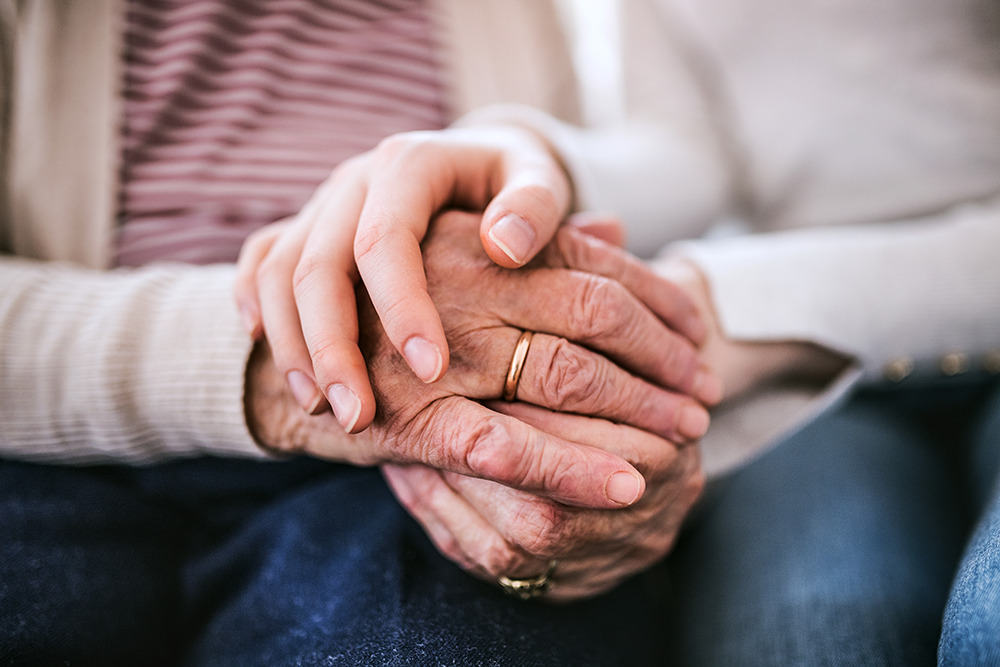According to WHO, over 50 million seniors aged 65 and above suffer from dementia. Out of that estimated number, about 5.8 million are senior Americans whose dementia already progressed into an Alzheimer’s disease.
Every year, millions of older adults and their families agonize over the consequences that come with dementia. In addition to memory loss, it also causes several cognitive and behavioral changes that can severely impact seniors and their loved ones’ lives.
As the disease progresses, your part as a loved one, support system, and caregiver should also change for the better. Besides taking them to the best memory care in Oceanside, California, you should know how to understand and handle these behavioral changes.
So here’s a run-down on the behavioral changes to expect and how to effectively and healthily deal with them.
Common Behavioral Symptoms of Dementia
As your senior loved one enters the middle stages of dementia, forgetfulness will become the least of your concern. Behavioral changes will start to happen at this stage. It will arise out of nowhere and may come in and out even without provocation.
Some of the most common ones you need to anticipate include:
- Aggression – This can be seen as a sudden bout of verbal or physically aggressive behavior. It can be caused by frustration, physical discomfort, emotional distress, and sometimes without any reason.
- Anxiety or Agitation – May be characterized by restlessness or suddenly moving and pacing around, especially when upset.
- Confusion – Because of memory loss, they may have difficulty processing their surroundings, making them feel confused. It can also lead to repetitiveness, like asking the same questions or doing a task they already did.
- Depression – This is one of the most common behaviors seen in dementia patients. When depressed, they usually isolate themselves, limit contact with other people, and suddenly lose interest in their once beloved activities.
- Hallucinations and Delusions – Dementia deteriorates brain functions, causing affected seniors to see, hear, or taste things that are not there. You may sometimes witness them talking to a longtime deceased spouse or complain about crawling insects on a relatively pristine wall.
- Poor Judgment – dementia also impairs their ability to think straight and process complex thoughts. This is also the reason why caregivers sometimes think patients are “manipulative.”
But in reality, dementia patients just don’t realize what they are doing. They lose the ability to reason, analyze logic, and make sound decisions, thus often coming off as manipulative.
- Wandering and Night-time Walking – Short memory loss causes seniors with dementia to wander, not knowing where to go or how they got there in the first place.
Understanding and Dealing With Dementia Behaviors
The behavioral symptoms of dementia usually arise during the disease’s middle to late stages. This means that brain deterioration becomes progressive, causing new signs to be more evident.
As a loved one or a caregiver in a memory care community, it is your duty to be flexible and adapt to these challenging changes.
Most behavioral changes can be caused by dementia, but more often than not, these outbursts emerge due to frustration of not being understood, discomfort, or environmental changes.
Here are some useful strategies and tips in handling a senior’s dementia behaviors to help you cope better with the changes.
1. Learn About It
It is hard to understand something that you know nothing about. So your first course of action should be to learn as much as you can about the possible behaviors your loved one might exhibit.
You can ask their doctor, other caregivers, or research on health websites. Gaining knowledge about their illness allows you to empathize with your loved one on a deeper level. You will also get to prepare strategies ahead of time, instead of getting caught off guard.
2. Identify and Prevent Specific Triggers
Behavioral outbursts can come out of nowhere, but sometimes, they can surface due to specific triggers.
You can determine what triggers your loved one by observing and keeping tabs on what activity or happening precedes the tantrum. You can also keep a diary of their daily activities, so you can quickly identify a trigger.
 3. Counter With Compassion and Reassurance
3. Counter With Compassion and Reassurance
It is crucial to remember that your loved one has little to no control of the things they do or say during an episode. So, lengthen your patience and always respond with kindness and compassion. Some of the things you can do include:
- Responding in a soft voice and calm manner.
- Respond with emotions like offering reassurance or letting them know that you are there for them.
- Remove specific triggers by redirecting them to a positive activity.
- Offer physical demonstrations of support and comfort like massaging their hands or hugging them.
- Always keep your sense of humor and maintain a pleasant attitude.
Keep in mind that your loved one has a brain illness, which means that it would be hard for them to change and even control their behavior.
So, instead of controlling them, try accommodating their behavior if possible or changing your response towards them. Meet them halfway to end up with a peaceful compromise.
4. Engage Them in Activities
Often, seniors with dementia act out because they want to fulfill a need, be busy, or be productive.
You can reduce their unpleasant behaviors by filling their time with enriching activities. Make sure to choose ones that they find desirable and exciting.
You can opt to let them try related activities that they enjoy during their professional years or develop a remaining skill that they still have.
Start with easy and small tasks. Ease them into it by assisting them and helping whenever they forget the next step. Some activities to try include:
- Folding clothes
- Listening to their favorite music
- Dancing, walking, and other simple exercises
- Making dinner together
- Setting the table
5. Get Help
We are all human, and we tend to have limits. Before reaching yours, it is better to surround yourself with a robust support system by getting help.
You can ask another family member to help you with caregiving or move your senior loved one into a memory care community near you.

